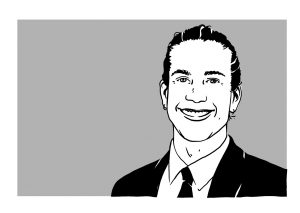The destruction caused by Hurricane Maria recently brought the plight of Puerto Rico to the front pages but, in reality, the U.S. territory has been suffering economically for decades. First-year MIA student Isaac Ward-Fineman walks through what has brought Puerto Rico to this point and how a bid for statehood could open up new options for economic recovery.
Over a month since Hurricane Maria touched down in Puerto Rico, many of its residents still have insufficient access to food, basic utilities, and shelter. Despite President Trump’s declaration that the federal government’s relief efforts merited a “10” out of 10, nearly 80% of the electric grid remains offline, and the island is facing a long-term recovery on top of its pre-existing financial woes. The devastation on Puerto Rico is nothing short of a humanitarian disaster on American soil but, when compared with the federal response afforded to the mainland just weeks before during Hurricanes Harvey and Irma, it has been treated more like a different country than the home of 3.4 million U.S. citizens.
Even if and when the federal government finally mounts an adequate response to this humanitarian disaster, clearing the debris from the roads and rebuilding the island’s infrastructure alone won’t rectify the long-term political and economic issues that left the island so vulnerable to natural disasters in the first place. Puerto Rico needs a fundamentally new way to manage its precarious state of affairs that, short of the U.S. government granting it independence, can only be found through becoming a federal state and gaining the democratic rights that its citizens deserve.
There is plenty of blame to go around for Puerto Rico’s economic decline, of which its status as a semi-autonomous territory plays no small part. After being acquired from Spain in 1898, the Puerto Rican economy was based near-exclusively on sugar production at the behest of the US government. This lasted until the 1940’s, at which point Congress passed special tax exemptions that shifted its economy from mono-crop agriculture to cheap, industrial labour for American corporations. Pharmaceutical, tech and petrochemical companies dominated the island’s economy, producing massive profits that were then moved back to the United States, virtually tax-free.
The so-called “economic miracle” began sputtering in the 1980’s as US multi-nationals left to seek even cheaper labour abroad, but the rug was finally pulled out from under Puerto Rico by President Clinton and Congress via a 10-year phase-out of its special tax status in 1996, eviscerating the corporate incentives that the island’s economy had long been centred around. The Puerto Rican economy has been in recession since 2006, with one of the most indebted public sectors in the world and unemployment double to that of the US mainland, even before Hurricane Maria raked across the island.
Congress has been largely ineffective in finding a solution to Puerto Rico’s debts, in no small part due to the fact that, while American citizens, Puerto Ricans don’t have a voting representative in Congress and are largely voiceless in legislative matters pertaining to the island. An even more insidious explanation would be that of Puerto Rico’s triple-exempt bonds, which are free from federal, state and local taxes. These bonds can be bought by anyone in the U.S. and thus have become a common part of investment portfolios across the country, despite the island’s bonds being downgraded to “junk status” in 2014. It is here that the moral hazard comes into the picture; even as Puerto Rico is being called the Greece of the U.S., Congress has little incentive to grant it substantial debt relief unless they wish to bear the wrath of creditors from across the mainland.
This brings us to the state of Puerto Rican pre-Hurricane Maria; a shrinking economy in which the government has no choice but to dramatically cut back spending, skyrocketing unemployment causing a brain drain as many move to the continental USA for work, all of which causes further economic contraction.
The Puerto Rican government has been pushing for years to declare bankruptcy and restructure its debts but, without the rights of a state, has had little success. In 2014 Puerto Rico attempted to enact its own bankruptcy laws to deal with the $26 billion in public utility debt, nearly a third of the island’s total debt. The Supreme Court ruled against Puerto Rico after creditors brought suit, stating that Chapter 9 bankruptcy only covers municipalities (for instance, the record-breaking insolvency of Detroit) and thus Puerto Rico cannot authorise its own bankruptcy laws.
But if Puerto Rico’s status as a territory and not a state is what is holding up action in Congress and the Supreme Court on its debt problems, why shouldn’t it make a stronger push for federal statehood? At least in theory, statehood would give Puerto Rico legitimate democratic representation in the legislature and the right to declare bankruptcy, helping it overcome two of its biggest challenges. While the concept is foreign to much of the U.S. mainland, it has been a hotly debated issue on the island for some time. In referendums in both 2012 and 2017, a majority of voters cast their ballots against remaining a territory, with U.S. statehood as the most popular alternative course.
To be sure, there is strong domestic opposition within Puerto Rico to any change in its sovereignty status, and there would need to be a strong sense of political unity on the island for a bid for statehood to gain legitimacy and attention on the mainland. The Puerto Rican diaspora on the U.S. mainland would also need to be behind the push for statehood and make it an unavoidable issue for their respective Congress representatives and the nation as a whole.
The fight for federal statehood is not without its challenges and is by no means a panacea. Whichever path it follows, Puerto Rico is facing a number of tough years as it rebuilds following Hurricane Maria. The difference is that, as a state, Puerto Ricans would at least have the means of recourse to solve their hefty debt problems as well as the fundamental democratic rights that would make them equal citizens of the U.S.
 Isaac Ward-Fineman is a class of 2019 Master of International Affairs candidate at the Hertie School of Governance. He graduated with degrees in Political Science and Japanese from the University of Oregon. Isaac has worked in the educational development sector Asia, Sub-Saharan Africa and Latin America and is interested in renewable energy access, migration in the Americas and issues driving wealth inequality.
Isaac Ward-Fineman is a class of 2019 Master of International Affairs candidate at the Hertie School of Governance. He graduated with degrees in Political Science and Japanese from the University of Oregon. Isaac has worked in the educational development sector Asia, Sub-Saharan Africa and Latin America and is interested in renewable energy access, migration in the Americas and issues driving wealth inequality.
